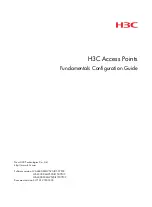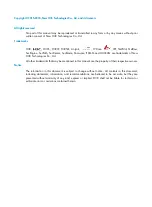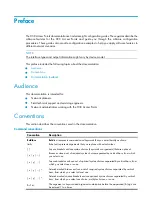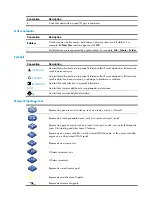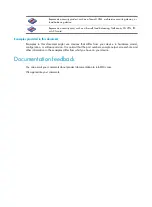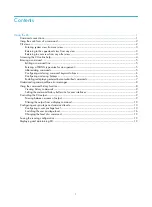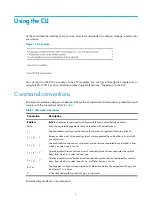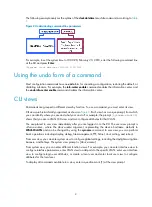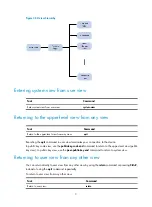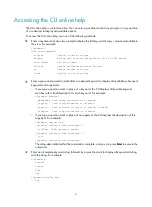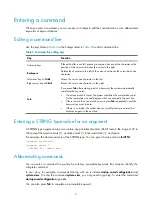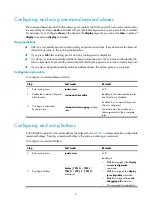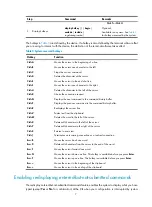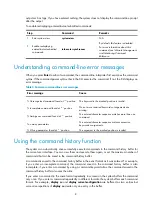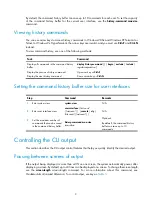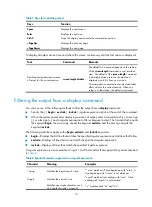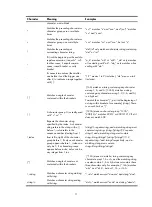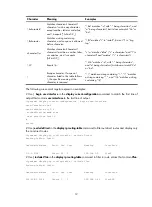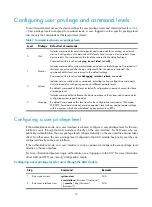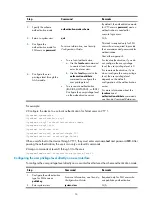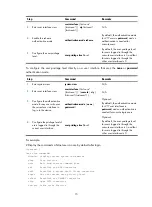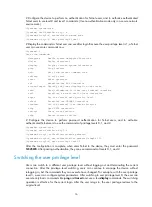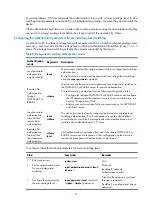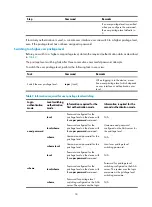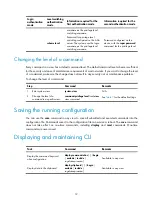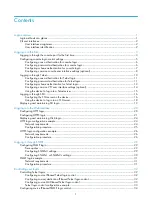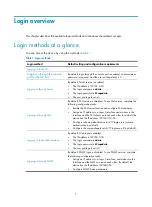
7
Step Command
Remarks
Ctrl+T
or
Ctrl+U
.
3.
Display hotkeys.
display hotkey
[
|
{
begin
|
exclude
|
include
}
regular-expression
]
Optional.
Available in any view. See
for hotkeys reserved by the system.
are defined by the device. If a hotkey is also defined by the terminal software that
you are using to interact with the device, the definition of the terminal software takes effect.
Table 3
System-reserved hotkeys
Hotkey Function
Ctrl+A
Moves the cursor to the beginning of a line.
Ctrl+B
Moves the cursor one character to the left.
Ctrl+C
Stops the current command.
Ctrl+D
Deletes the character at the cursor.
Ctrl+E
Moves the cursor to the end of a line.
Ctrl+F
Moves the cursor one character to the right.
Ctrl+H
Deletes the character to the left of the cursor.
Ctrl+K
Aborts the connection request.
Ctrl+N
Displays the next command in the command history buffer.
Ctrl+P
Displays the previous command in the command history buffer.
Ctrl+R
Redisplays the current line.
Ctrl+V
Pastes text from the clipboard.
Ctrl+W
Deletes the word to the left of the cursor.
Ctrl+X
Deletes all characters to the left of the cursor.
Ctrl+Y
Deletes all characters to the right of the cursor.
Ctrl+Z
Returns to user view.
Ctrl+]
Terminates an incoming connection or a redirect connection.
Esc+B
Moves the cursor back one word.
Esc+D
Deletes all characters from the cursor to the end of the word.
Esc+F
Moves the cursor forward one word.
Esc+N
Moves the cursor down one line. This hotkey is available before you press
Enter
.
Esc+P
Moves the cursor up one line. This hotkey is available before you press
Enter
.
Esc+<
Moves the cursor to the beginning of the clipboard.
Esc+>
Moves the cursor to the ending of the clipboard.
Enabling redisplaying entered-but-not-submitted commands
The redisplay entered-but-not-submitted commands feature enables the system to display what you have
typed (except
Yes
or
No
for confirmation) at the CLI when your configuration is interrupted by system

